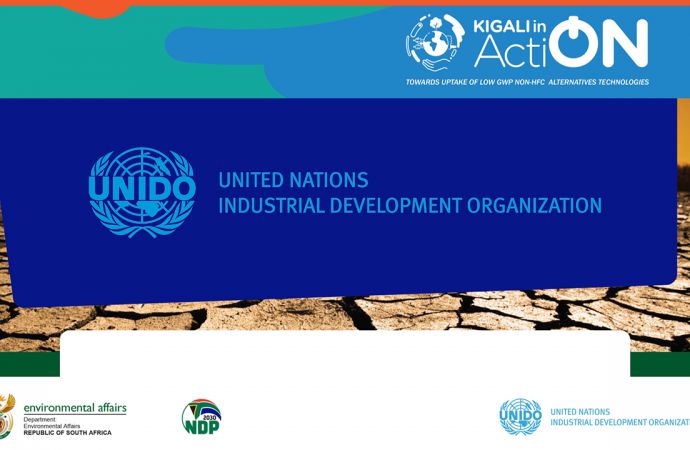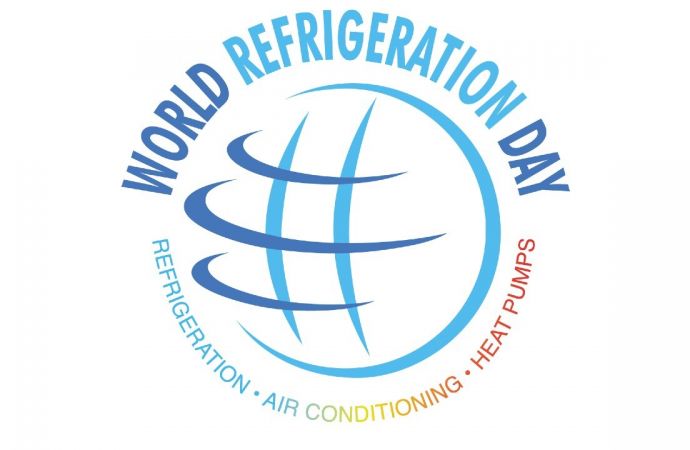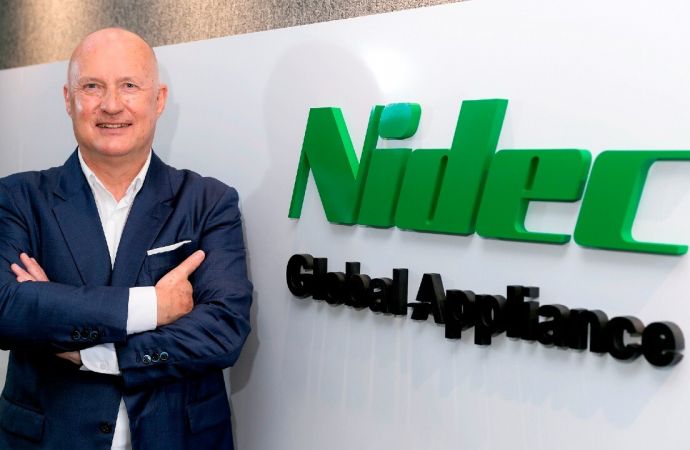A recent Cape Town workshop saw presenters from around the world advise the country on how to move towards more climate-friendly technologies.

The workshop took place in Cape Town from December 5-6.
A recent two-day workshop in Cape Town, South Africa, brought together industry and government representatives, as well as other stakeholders to discuss opportunities to increase the uptake of low-GWP non-HFC technologies, energy efficiency in the cooling sector, and safety standards while phasing down HFCs under the Kigali Amendment to the Montreal Protocol.
Held from December 5-6, the event was organized by the United Nations Industrial Development Organization (UNIDO) together with the South African Department of Environment, Forestry and Fisheries (DEFF).
Since South Africa ratified the Kigali Amendment in August 2019, its collaboration with UNIDO has been strong, facilitating a smooth transition towards implementation in the country. The DEFF expressed its interest in supporting the local HVAC&R industry in speeding up the HFC phase down.
In his opening remarks, Yury Sorokin, Industrial Development Officer, UNIDO emphasized the importance of working together to achieve common goals. “If the Government works together with industry, as has been the case in South Africa, we will see better results in the implementation of the Kigali Amendment,” he said. Mark Gordon, Deputy Director General, Chemicals and Waste, DEFF noted that with “the increasing devastating impacts of climate change, including unprecedented increases in temperature and adverse weather, combined with our efforts to enhance ozone protection of the earth, the industry will have to phase out high-GWP HFCs and seek out more climate- and ozone-friendly alternatives.”
The first day of the workshop examined the experience of countries that successfully phased down HFCs and included possible ways to improve efficiency for the local HVAC&R industry while exploring standards and market transformations. It also included a natural refrigerant panel discussion, looking at the potential of these gases for the South African market.
It was a very interactive workshop with great participation from government and industry alike, all with a common goal of trying to “leapfrog” from HCFCs over HFCs as the government has expressed on many occasions. South Africa is still at the very beginning of its HFC phase-down journey and on the day before the conference, a stakeholder meeting was held to discuss the progress in meeting targets for the HCFC phase out.
As an Article 5 (developing) Group 1 country, South Africa has baseline years ranging from 2020 to 2022; it freezes use at that level in 2024 to starts its phase-down plan per the Kigali Amendment. As the country solely imports refrigerants (some of which it exports again to neighboring countries), stakeholders have been working together for the past few years to update import tariff codes to list HFCs individually. This will assist in being able to monitor which HFCs are being imported and exported.
Government urged industry to assist it with the looming phase down as meet the requirements of the Kigali Amendment. “We do not currently have adequate rules in place,” explained Margaret Molefe, Director: Hazardous Chemicals Management of DEFF. “We need to understand how we should meet these obligations so we can comply with them.”
Natasha Kochova, Consultant with the Montreal Protocol Division, Department of the Environment, UNIDO shared and overview of energy efficiency in the context of international agreements. She looked at the big picture, sharing the various decisions of the Montreal Protocol’s Open-Ended Working Group (OEWG) and Meeting of the Parties (MOP) events over the past few years. Her presentation particularly looked at the impact of refrigeration on the climate and shared a slide that showed how changing to low-GWP alternative refrigerants can have an even bigger impact on the environment than turning vegetarian.
Day one of the workshop was followed by a site visit to the newly opened upmarket Woolworths food retail store not far from the conference venue. The V&A Waterfront store boasts an impressive transcritical CO2 rack built by Mainstream Refrigeration in Cape Town. During the natural refrigerants panel discussion, Alex Kuzma, Head of Engineering at Woolworths had said that the company will exclusively be installing transcritical CO2 refrigeration systems for all its large stores. Even in its smaller stores, he added, CO2 is becoming more popular.
Don’t fear change
On day two of the workshop, discussions were held on policies and activities assisting the HFC phase-down process, including best available technologies ,and options for unlocking the benefits of non-HFC technologies.
The program included various presentations on training of technicians and refrigerant licensing, as well as standards currently being developed for the sector, showing industry’s progress in moving away from HFCs. Stuart Fleming, Group CEO of Enviroserve, a refrigerant recycling facility in the UAE encouraged industry to make a drastic change and give end users no choice but to be sustainable. “Don’t be afraid of radical change in global sustainability – we’re at a time where we have to now,” he said.
John Ackermann, Chairman of the South African Refrigeration Distribution Association (SARDA) and founder of the Cold Link newspaper, gave a very moving presentation about the history of natural refrigerants in South Africa, urging industry and government to think in a different way. “The only long-term solution is natural refrigerants; whether we like it or not,” said Ackermann. “There are challenges, but if we can go to the moon, we can overcome those minor details.”
Ackermann shared examples of natural refrigeration systems that have been working in the country for many decades. “There is enough proof that these systems work,” he said. Looking at the way forward, he suggested comprehensive skills training, safety awareness campaigns, compliance with existing standards and regulations; he called on government to lead by example by putting natural refrigerants in its own buildings. “Everyone has a role to play,” Ackermann concluded. “The ball is in your court to extend the quality of life on our planet.”
The well-attended event was hailed a success by both UNIDO and DEFF, the former commented on numerous occasions how rare it is to see industry and government working together this well on the HFC phase down. Throughout the event, various speakers and stakeholders referred to the people in the room as a “family,” all fighting for a common goal.
The only long-term solution is natural refrigerants… There are challenges, but if we can go to the moon, we can overcome those minor details.” - John Ackermann, SARDA
Natural refrigerants in 2020
The conversation continues next year on March 10, 2020 when the first ATMOsphere Cape Town event takes place at the Vineyard Hotel to discuss the future potential of natural refrigerants in South Africa. The event will bring together industry, government, and end users to talk about the way forward. Registrations are now open. Find out more.
Related stories



